Naiya - Community Exchange of Goods through Ganga
System Design | Information Architecture | UI Prototyping
Duration: 48 hours
Design Hackathon - Winners
Buyer Interface
Seller Interface
Boat man Interface

WINNERS
Conducted & Sponsored by:


Problem Statement
Design entrepreneurship and livelihood opportunities for people residing in the Ganga river region, using local products and produce.
Problem Analysis
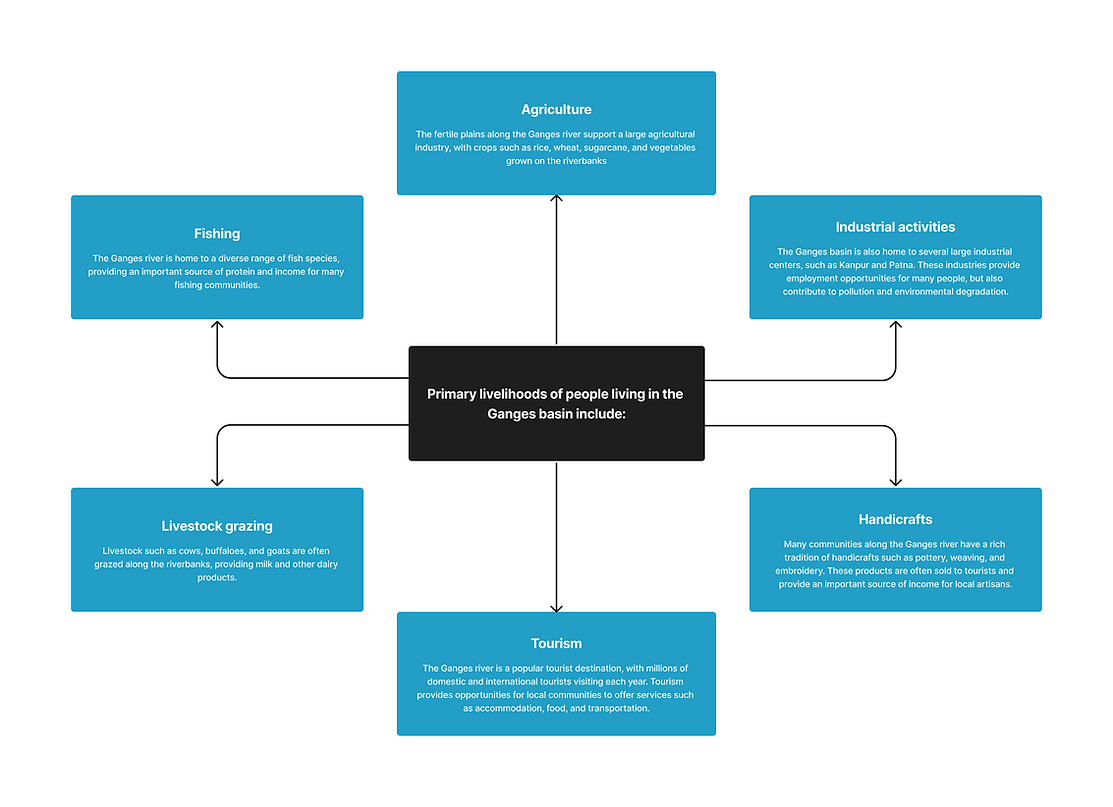
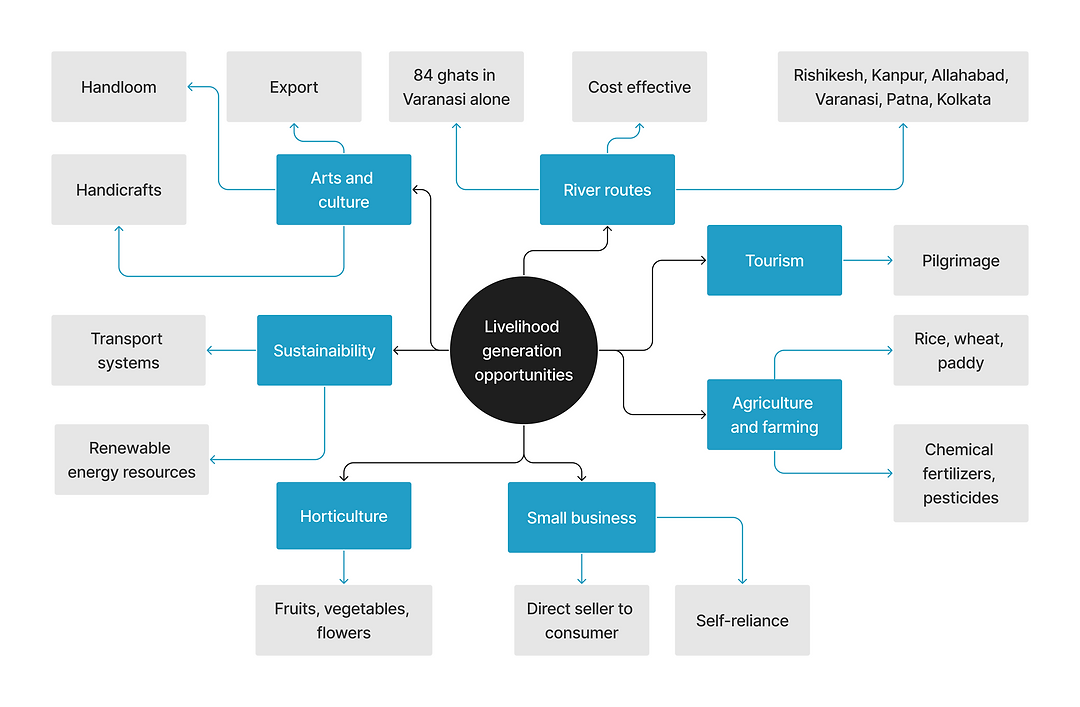
Opportunity Areas
The key opportunity areas for livelihood generation opportunities involving the local products lie in the connectivity between different cities along the Ganges and making businessmen self sufficient by eliminating middlemen.
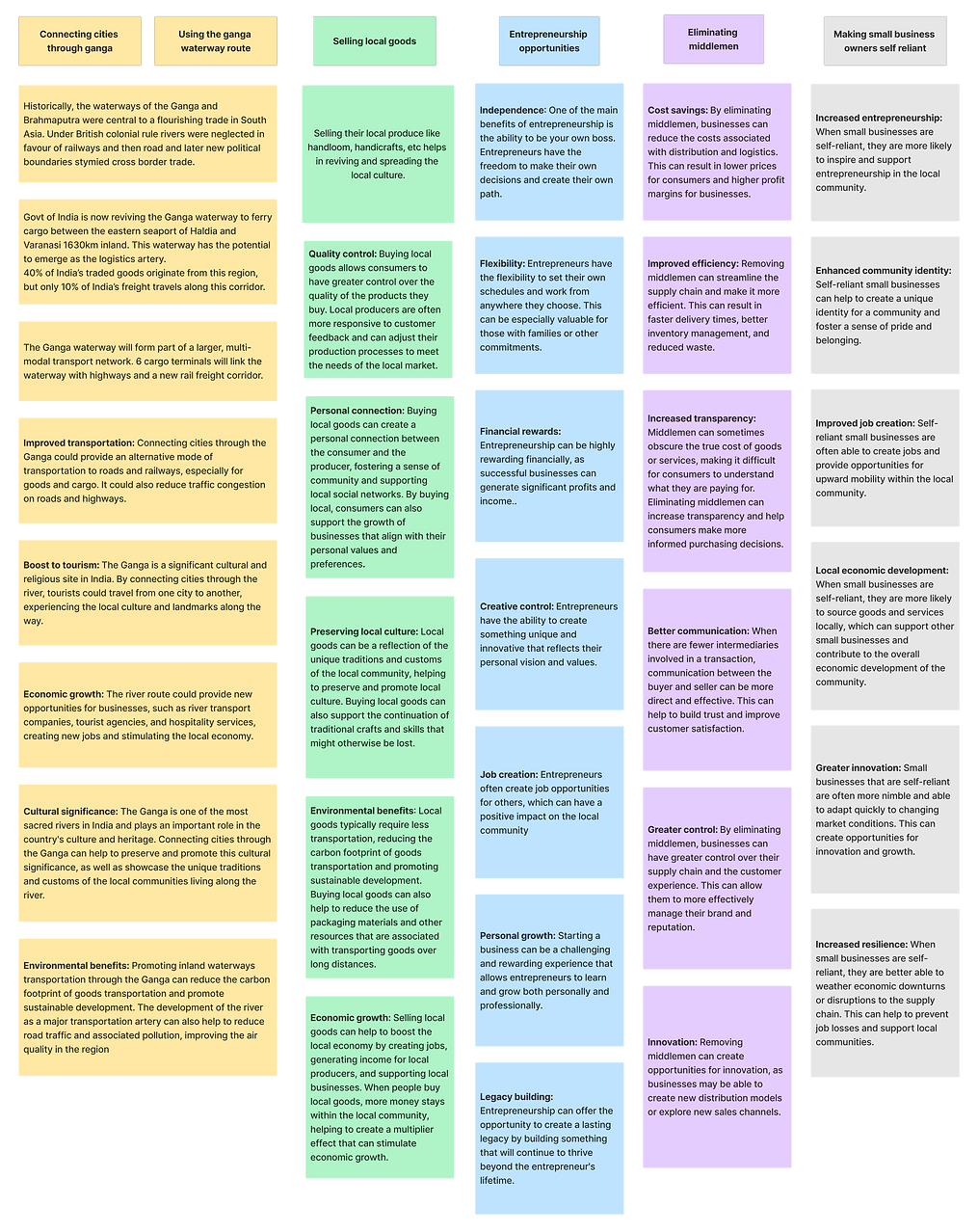
Brainstorming
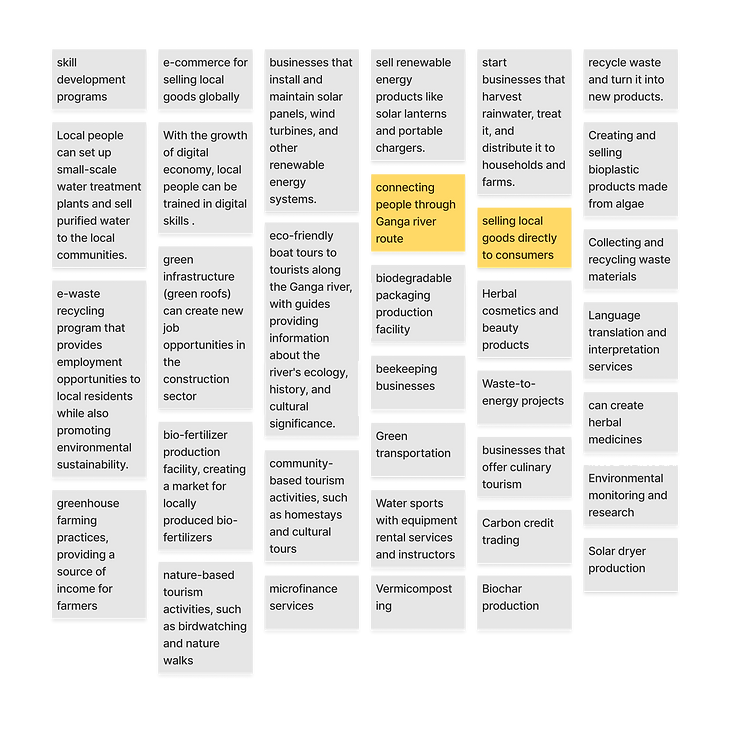
After listing down the opportunity areas, we brainstormed different possibilities that could help achieve and turn those opportunities into viable solutions. By prioritising the key focus areas, we narrowed down our scope.
Concept
A marketplace which connects the sellers from local regions in and around the Gangetic plains to the consumers along the route through water transport.
3 Major stakeholders involved - Sellers, Buyers, Boatmen
By eliminating middlemen in this trading process, sellers will get maximum returns at market rates, which in turn will boost entrepreneurship in the community.

Efficiency of boat transport via the Ganga river
Cheaper
Water transport costs Rs. 1.19 per tonne for each km, which is significantly lesser than rail transport (Rs.1.41/tkm) and road transport (Rs 2.28/tkm).
Saves Fuel
Capacity of 1 litre fuel for freight in India is 105 tonnes for waterways, 85 tonnes for railways and 24 tonnes by road
Current system leads to traffic congestion
Out of the total trade that takes place, 65% is through roads, which contributes to the already existing traffic congestion and encroachment on the Ganga plain.
Around 27% is through railways and only 0.5% through waterways.
UI Prototyping
Buyer's Interface


Products Availability
Buyers can choose from a range of products and view the product description and details.
Available in Hindi
The app allows users to switch language to Hindi for wider reach and better communication.


Request cart items
After adding items to the cart, buyers send an order request to the seller. If accepted, the order gets processed.
Track orders
Buyers can track orders at 3 major steps of the process - dispatch, in transit and delivery.
Selller's Interface
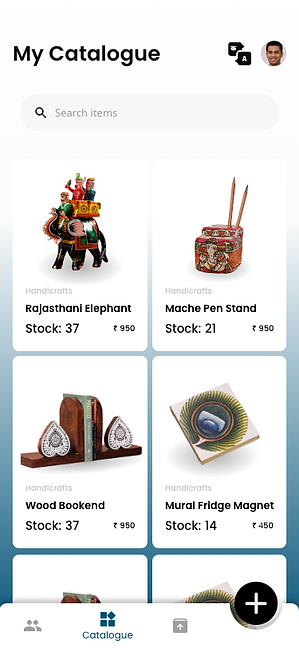

Add/Edit Products
Sellers can add products to their catalogue and edit product details and stock.


Call / Chat with Buyer
To align with real-world processes, sellers can communicate with buyers through a chat feature while accepting order requests, allowing for any necessary clarifications.
Boat Booking
Upon order confirmation, the seller can book a boat with the necessary capacity to collect and transport their products to the buyer.
Boat Man's Interface


Ride Requests
The boat man receives ride requests from the seller. Upon approval, the boat man can see the route map.
While en route, the boatman can view the route map screen. If they desire to access different pages of the application, the map will minimize to a small widget on the screen.

Update Tracking
Boat man can update the progress of the order after dispatch and delivery. The app allows them to scan a QR code at the ghat to confirm the same.

Boatman's Availability
The boatman can provide updates on their availability to take trips during certain days of the month, as well as their preferred areas along the river and timings.
This flexibility minimizes the chances of cancellations due to unavailability of boatmen.


